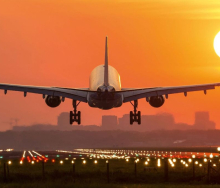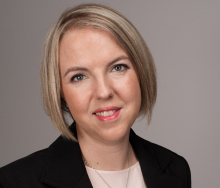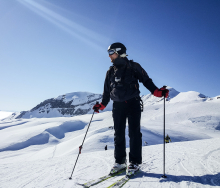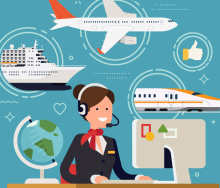Travel agency managers have in the last two years been overloaded with information, advice, planning, backtracking and reinvention and have had to try to absorb, adopt and disseminate information and make sensible decisions. It’s an understatement to say it has been challenging.
“Travel is resilient”, “We will get through this”, “At least you still have a job”. These were phrases bandied around in hope and defiance when the unprecedented curve ball, a world pandemic, showed its colours.
In November 2022, where are we? Worldwide, tourism, which during the pandemic declined by 75%, is operational again and the post-COVID bounce-back has been better than initially expected. According to Iata, in January to April this year travel numbers were up 75% on the same period in 2021. Numbers across the Middle East and Africa are significant and since mid-year, the surge in flight searches has been close to 97% of 2019 figures. Hotel occupancy is 3% higher than in 2019.
All these numbers are promising, but what is to come? We were caught with our pants down in 2020 and now new challenges have to be considered.
- Inflation. Europe and the UK have been hit hard and inflation is not expected to ease in the short term.
- Price increases. Disposable incomes are dropping (due to inflation) and wages aren’t keeping up.
- Air ticket prices are maintaining high levels and perceived value is going to be paramount.
- Global recession and stagflation are anticipated to last 2-3 years.
Staff shortages and the availability of good quality staff across all suppliers, airline staff, cabin crew, pilots and airport handlers are an issue. Good quality travel agents are exiting the trade, South African agencies are dealing with capacity challenges. This continues to be a huge challenge for the industry worldwide.
In South Africa, airline capacity is severely constrained and our aviation recovery is lagging behind other countries. Seat capacity is down 40% on trips originating in South Africa, which affects prices and overbooking levels, and it looks to last longer than the short term. If capacity is not available, there is nothing to sell.
Where and how do agency managers start to future-proof their travel business in the current environment?
Value of the agent
Spending on the travel experience will become more of an investment than it has been in the past. The benefit that travel agencies and their consultants provide to their travelling customers by virtue of their knowledge, skills and astuteness, will be essential and should be treated in the agency as a valuable commodity. It is likely that the agent’s service fee will become less significant when viewed as a proportion of a trip with the new, increased airfares. But it is imperative that every travel agent knows their own value as an agent, what their time and service are worth, and adjust their fees accordingly.
The demand is there and increasing – that’s good news for agents. So how can we take advantage of this situation and strategise, and relook at how we operate and ensure that we never get caught with our pants down again?
It’s not ‘business as usual’
In a recent Sure Travel webinar, Andy Hedley, MD of Amadeus Southern Africa, alluded to the fact that Amadeus had looked very hard at its post-pandemic operations. Transactional business and air travel almost completely stopped during the pandemic and Amadeus generated little to no revenue.
Hedley believes that re-jigging the business to adopt other revenue streams is something that we all need to look at. Where does the bulk of revenue come from? We need to minimise costs permanently and think ahead. More planning is required post-COVID to ensure the longevity and prosperity of the travel agency business. Technology is a way of solving these problems. Automated processes at agency level and at provider level have an initial investment cost but are cheaper in the long term. Hedley believes that the whole travel industry needs to advance and that collaboration between all suppliers will be important for solutions and to renew the travel experience for our customers.
Black Swans bring change
In the same webinar, Allon Raiz, founder and CEO of Raizcorp and author of ‘Lose the Business Plan’, said the pandemic was something economically unprecedented, which nobody could have anticipated, and its effects continue. He said future-proofing your business has never been more important.
There will always be events that cannot be anticipated but we need to know how to handle them. We must make our businesses more resilient, so that it does not matter what comes our way. The context right now is that rules are breaking.
Raiz referred to ‘Black Swan’ events – in a world that has only white swans, the first time a black swan appears, it gives rise to variants of swans, both black and white. The rules that we had about running our business have disappeared. The rules of engagement have disappeared.
He said we needed to eliminate a brittle mentality, something that was a red flag for investment. With the rate of change happening now, anyone with rigid thinking is not going to survive the future. In travel, disruption often presents as an external crisis, new competition, economic and natural events – it does not have to be COVID. We should always anticipate the arrival of a new crisis and be prepared.
We need to think differently, believes Raiz, do differently and have a flexible business plan to navigate obstacles and take advantage of opportunities. The pre-COVID world was predictable and relatively easy to forecast and plan in – we understood weather patterns, holiday seasons, international events.
Make your business more resilient
He believes that crisis is a great equaliser that puts everybody in the same boat. The first to seek opportunity and grow, to take advantage of a smaller market, fewer travel agents and higher client expectations, will be ahead of the pack.
He advised business owners and managers to get the strategy right and become hyper-aware of how operational thinking affected the business, and acknowledge which part of your business needed to change in the new environment. “Where are the fires in your business, why are they happening and how can you avoid them?”
Raiz said 70% of small businesses had no strategy, and only 2,5% executed on strategy. Travel agents should ask “What is my reality?” and take an honest look at the business and its potential post-COVID. Are we only providing a service or producing value? What value can we produce in our businesses?
The value to the client was way above providing just a service, he said. The new culture of travel agency management should be to apply a good strong strategy, teach staff how to recognise the production of value, leave profits in the business and save for the future. “Ask yourself – ‘Would I invest in my own business?’” said Raiz.














